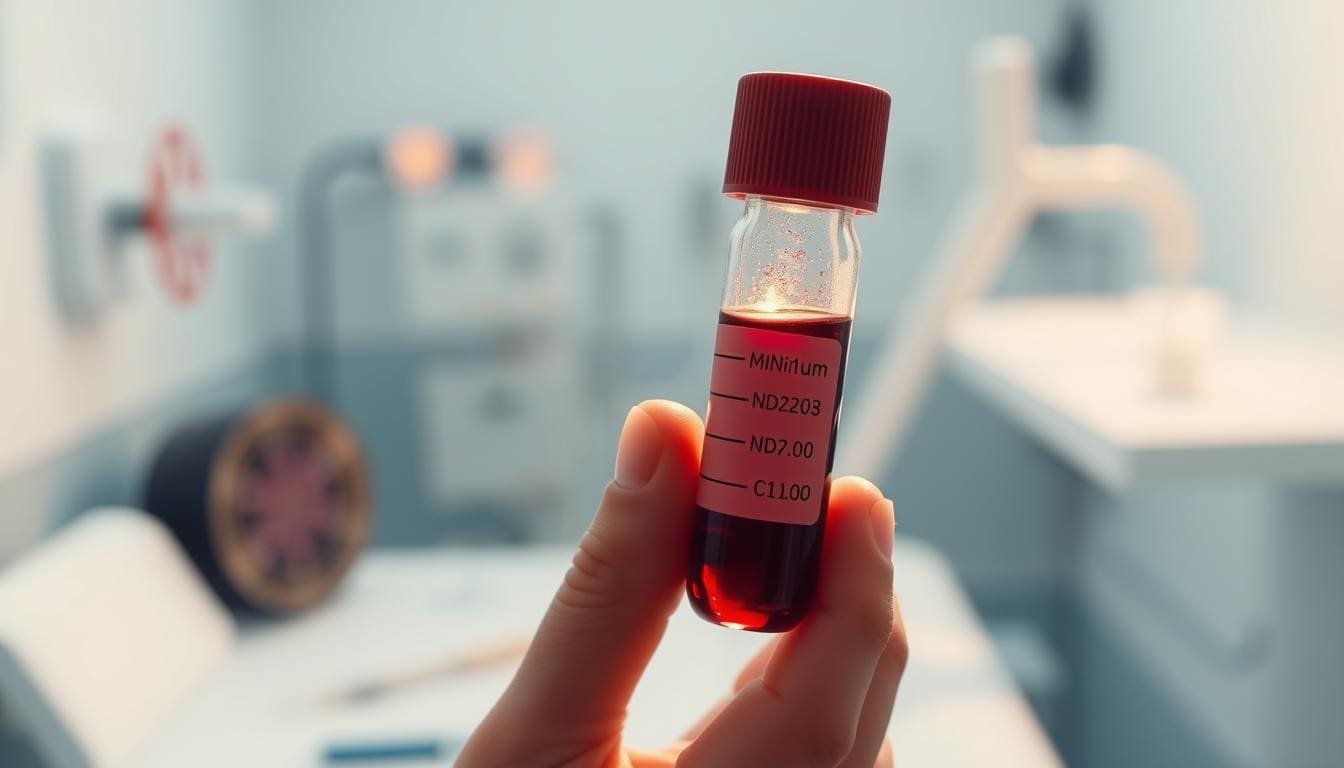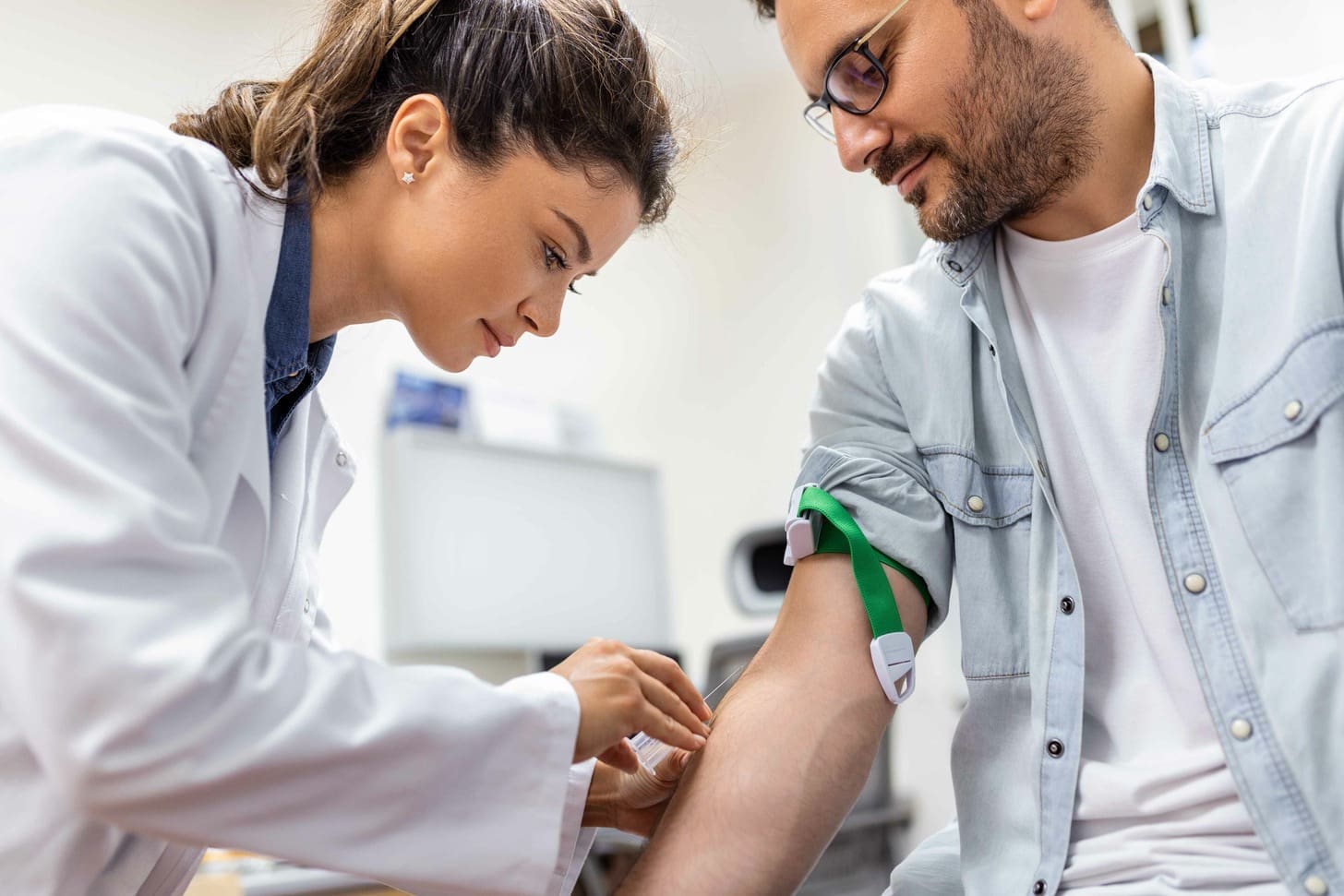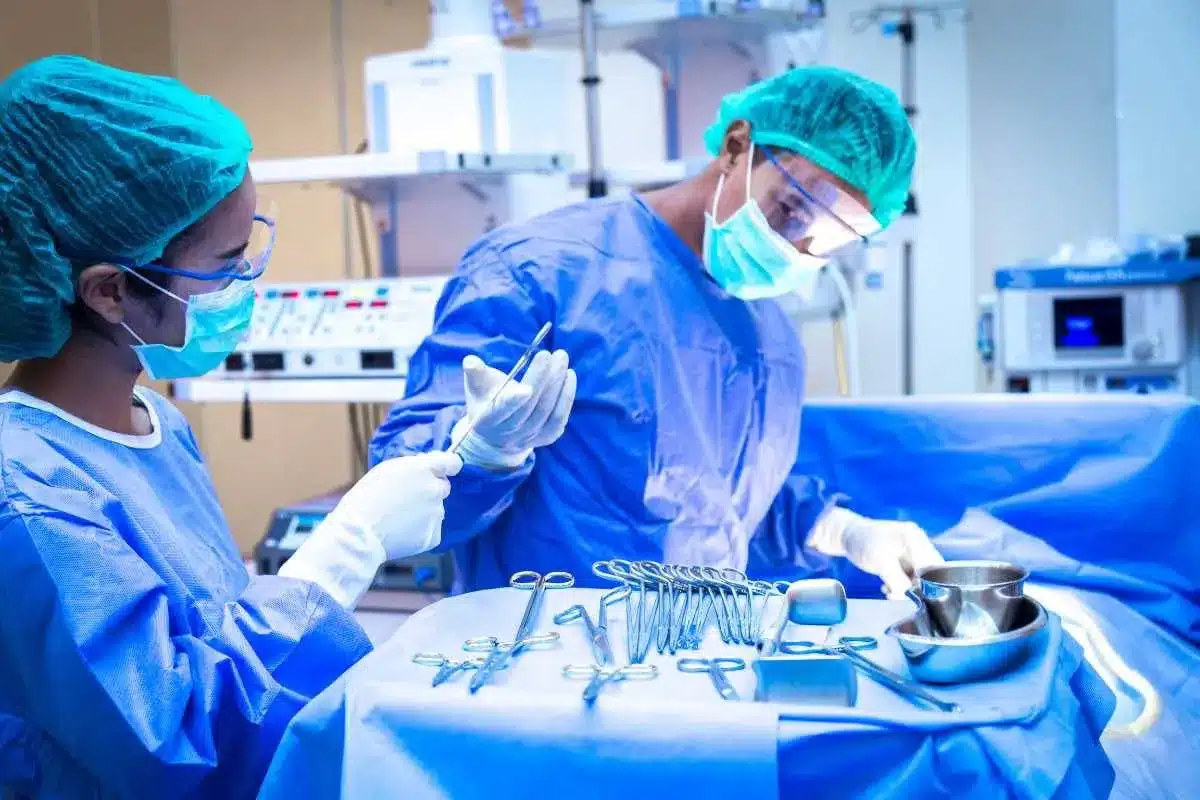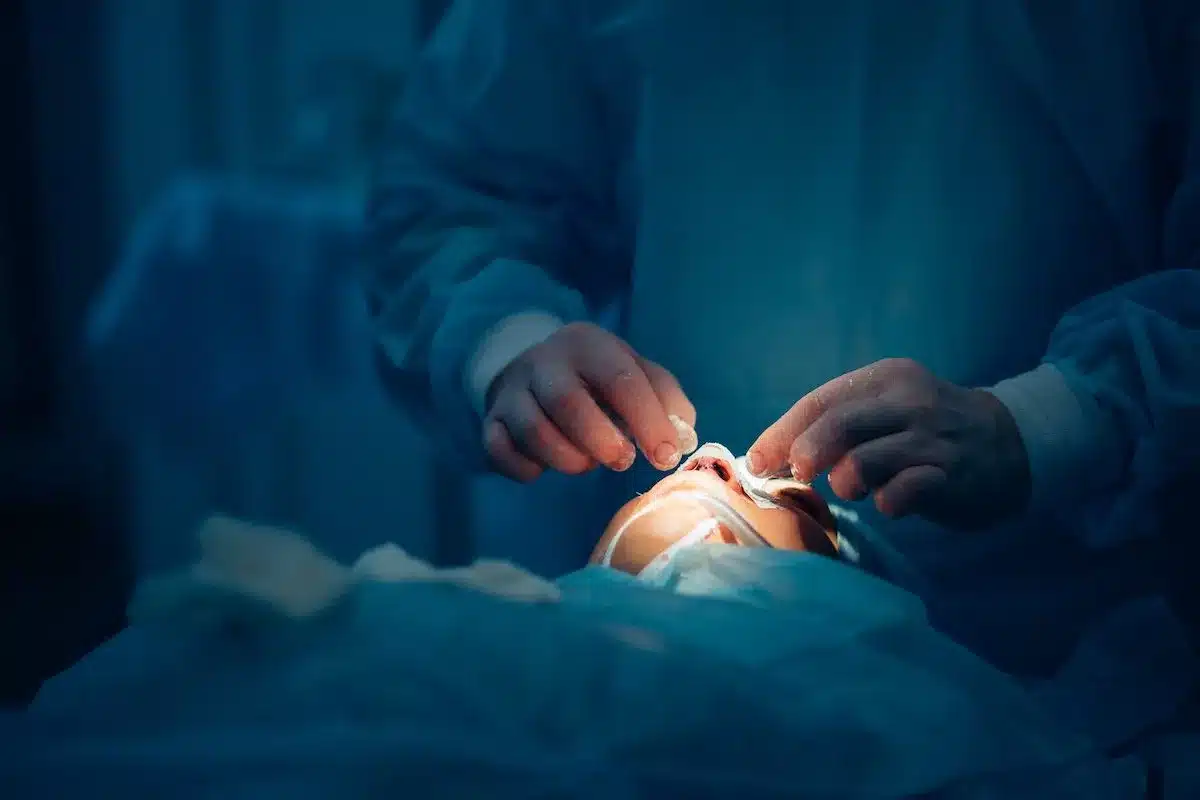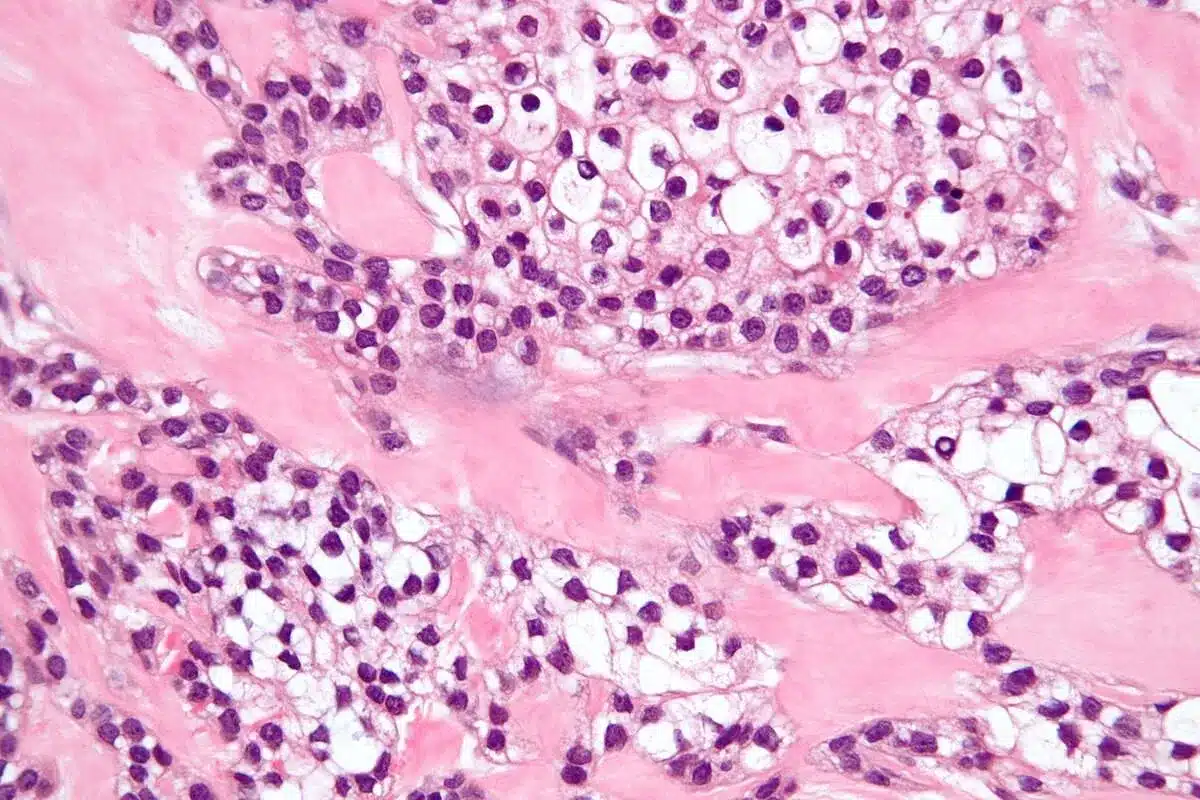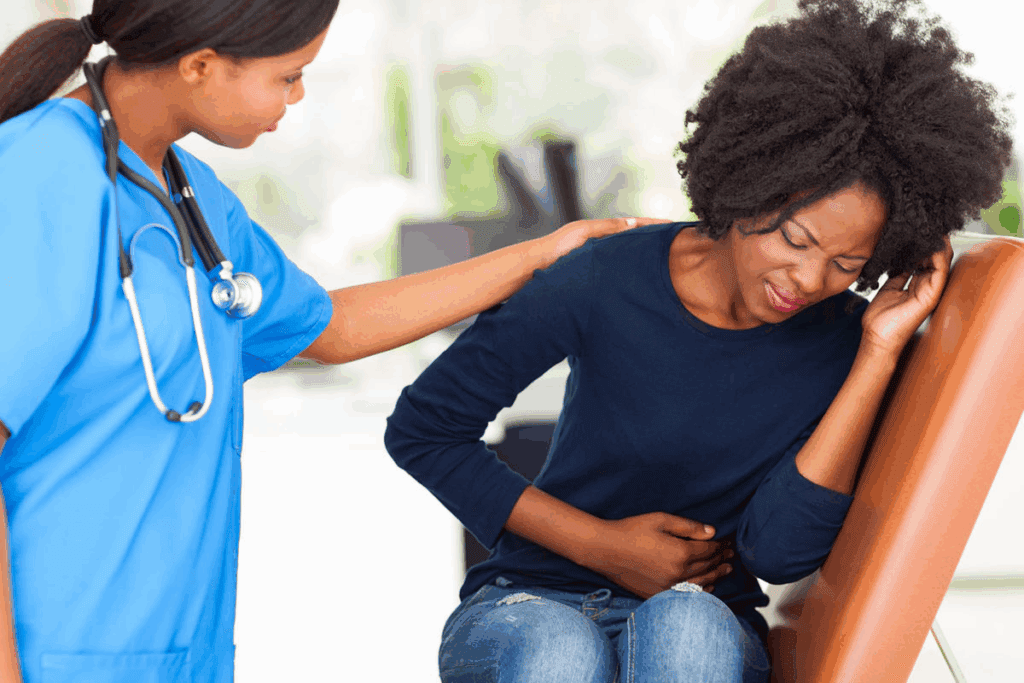
Cancer is a major cause of death globally. Early detection can greatly improve survival chances. We offer top-notch healthcare and support for patients from around the world. It’s important to know the warning signs of cancer early on.Understand the key cancer diagnosis signs and when to consult your healthcare provider.
Knowing what is cancer and its symptoms can save lives. Look out for unusual changes in your body that last. Spotting these signs early is key to catching cancer and treating it effectively. Let’s look at three important warning signs of cancer.
Key Takeaways
- Early detection of cancer significantly improves survival rates.
- Recognizing unusual changes in the body is key to spotting cancer signs.
- Cancer symptoms in women can vary, making awareness vital.
- Understanding what is cancer helps in identifying its warning signs.
- Timely medical intervention can save lives.
Understanding Cancer Diagnosis
Learning about cancer starts with knowing what it is. Cancer is when cells grow and spread out of control. It’s a complex issue caused by genetics and the environment.
What is Cancer?
Cancer happens when DNA in cells changes. DNA has genes that tell cells how to work and grow. When genes mutate, cells can grow without control.
These changes can come from genes or from things like carcinogenic substances. Knowing about cancer biology helps us understand how it starts and grows.
Why Early Detection is Crucial
Finding cancer early is key because it makes treatment more likely to work. Early cancer is easier to treat and less likely to spread. The cancer stages help decide how well you’ll do and what treatments you can have.
| Cancer Stage | Description | Treatment Options |
| Stage I | Cancer is localized | Surgery, Radiation |
| Stage II | Cancer has grown but not spread | Surgery, Chemotherapy |
| Stage III | Cancer has spread to nearby tissues | Chemotherapy, Radiation |
| Stage IV | Cancer has spread to distant parts of the body | Palliative Care, Targeted Therapy |
Knowing what causes cancer and the importance of early detection is important. We’ll look at cancer signs and how doctors diagnose it next.
Common Warning Signs of Cancer
Knowing the common signs of cancer is key for early detection and treatment. Cancer can show up in many parts of the body. Being aware of these signs can greatly improve treatment results.
Unexplained Weight Loss
One big warning sign of cancer is unexplained weight loss. Losing weight without a clear reason can point to health issues, like cancer. If you lose a lot of weight without trying, see a doctor.
Persistent Cough or Hoarseness
A persistent cough or voice changes, like hoarseness, can signal cancer, often in the lungs or throat. If your cough lasts more than a few weeks or your voice changes, get medical help.
Abnormal Bleeding
Abnormal bleeding is another important warning sign. This includes bleeding between periods, after sex, or after menopause in women, or blood in urine or stool. Any unusual bleeding needs a doctor’s check-up.
Spotting these signs early can lead to better treatment chances. Stay alert to your health and see a doctor if you notice any of these symptoms.
- Be aware of unexplained weight loss.
- Monitor persistent cough or hoarseness.
- Report any abnormal bleeding to your doctor.
Early detection is vital for cancer treatment. By knowing and spotting these signs, we can take care of our health and get medical help when needed.
Specific Symptoms to Watch For
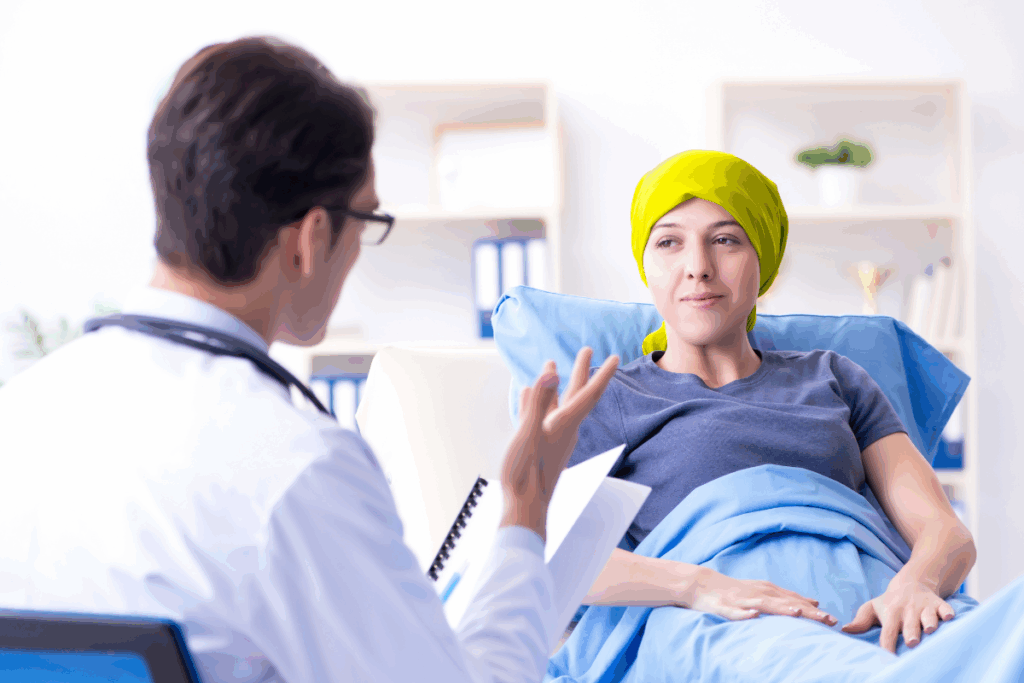
There are several key symptoms that could signal the onset of cancer. We will explore these specific warning signs that individuals should be aware of to facilitate early detection and intervention.
Skin Changes and Moles
Changes in the skin can be indicative of various health issues, including cancer. We should be vigilant about skin changes such as yellowing, darkening, or redness of the skin, as well as sores that won’t heal or changes to existing moles. These changes can sometimes be harmless, but they can also be warning signs of skin cancer or other internal cancers.
It’s essential to monitor any new or changing moles, specially those that are asymmetrical, have irregular borders, or exhibit multiple colors. If you notice any unusual skin changes, consulting a healthcare professional is advisable.
Changes in Bowel or Bladder Habits
Alterations in bowel habits or bladder habits can also be symptoms of cancer. Persistent diarrhea or constipation, or changes in the consistency of stool, might indicate colorectal cancer. Changes in urination patterns, such as increased frequency or pain while urinating, could be signs of bladder or prostate cancer.
| Symptom | Possible Cancer Association |
| Changes in bowel habits | Colorectal cancer |
| Changes in bladder habits | Bladder or prostate cancer |
Being aware of these changes and discussing them with a healthcare provider can lead to earlier diagnosis and treatment.
Persistent Fatigue
Persistent fatigue is another common symptom that can be associated with various types of cancer. Feeling extremely tired or weak, even after resting, can be a sign that something is amiss. This symptom is often reported by patients with leukemia, colorectal cancer, or other cancers.
While fatigue can be caused by many factors, persistent and unexplained tiredness should be evaluated by a healthcare professional, especially if accompanied by other symptoms.
The Role of Family History
Family history plays a big role in cancer risk. While most cancers aren’t inherited, a family history can raise your risk. If cancer runs in your family, it might be due to inherited genes.
Understanding Genetic Predisposition
Genetic predisposition means you might be more likely to get a disease because of your genes. For cancer, some genes can be passed down, raising your risk for certain cancers. Having a predisposition doesn’t mean you’ll definitely get cancer, but it means you should watch your health closely.
For example, BRCA1 and BRCA2 genes can raise your risk for breast and ovarian cancers. Lynch syndrome can also increase your risk for colon, ovarian, and other cancers. Knowing about these genes can help catch cancer early.
Importance of Regular Check-ups
If your family has a lot of cancer, regular health checks are key. These can catch cancer early, which helps a lot with treatment. Talk to your doctor about your family history to figure out the best check-up schedule.
These health checks might include different tests based on your family’s cancer history. For instance, if your family has colon cancer, you might start colonoscopies early. If your family has breast cancer, you might start mammograms sooner and also get breast MRI scans.
By knowing your genetic risk and following a screening plan, you can lower your risk or catch cancer early. This makes treatment more effective.
Diagnostic Tools Utilized in Cancer Detection
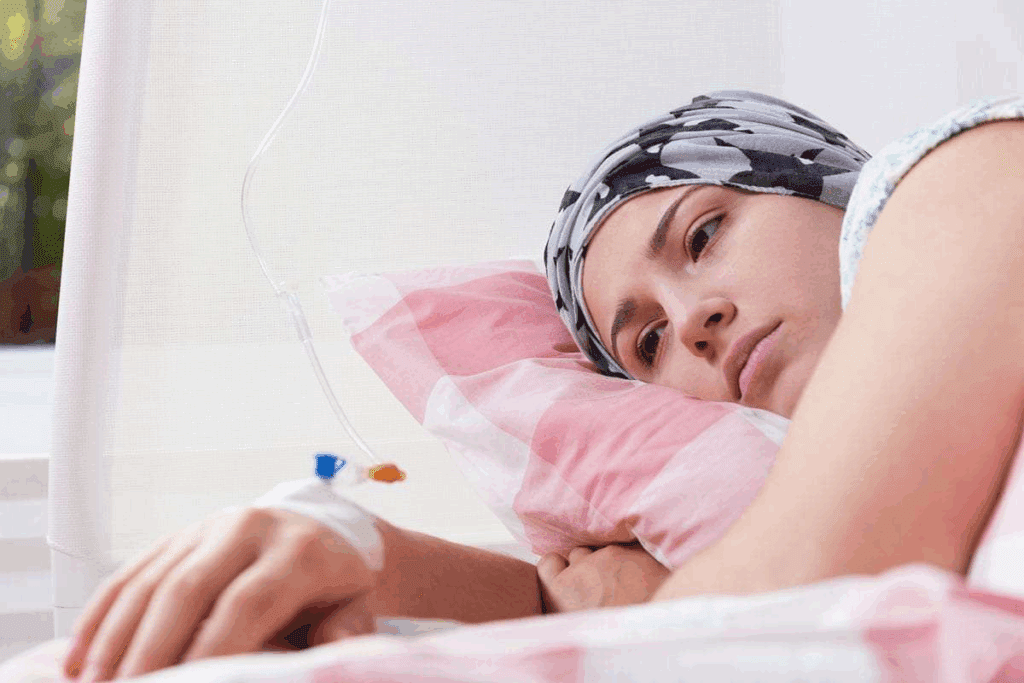
Choosing the right tools is key for catching cancer early. We use many methods to find cancer and figure out how to treat it.
Imaging Tests
Imaging tests are vital for spotting cancer. They let us see inside the body, helping us find tumors and see how big they are. Tests like CT scans, MRI scans, and PET scans give us important info for diagnosing and treating cancer.
Blood Tests
Blood tests are also important for finding cancer. They look for odd cell counts or markers in the blood. For example, a complete blood count (CBC) can spot cancer by looking at blood cells. Blood tests can also find specific markers for certain cancers.
Biopsies
Biopsies check tissue samples for cancer cells. They are the most reliable way to confirm cancer. There are many types of biopsies, like needle biopsies, surgical biopsies, and endoscopic biopsies, each for different cancers and situations.
“Early detection through the use of advanced diagnostic tools significantly improves cancer treatment outcomes.” This shows how critical these tools are in fighting cancer.
Understanding the Staging of Cancer
Cancer staging is key to knowing how serious the disease is and what treatment to choose. It helps us see how far the cancer has spread in the body. This is important for making a good treatment plan.
The Basics of Cancer Staging
Cancer staging tells us how much cancer is in the body and if it has spread. This info is vital for knowing the outlook and picking the best treatment. The TNM system is often used. It looks at the tumor size (T), nearby lymph nodes (N), and if it has spread (M).
Impact of Staging on Treatment Options
The cancer stage greatly affects treatment choices. Early cancers might just need surgery or local treatments. But, advanced cancers might need a mix of treatments like chemotherapy, radiation, and targeted therapy. Knowing the cancer stage helps us tailor the treatment to fit the person’s needs.
| Cancer Stage | Description | Typical Treatment Approaches |
| Stage I | Cancer is localized and small in size. | Surgery, localized treatments. |
| Stage II & III | Cancer has grown or spread to nearby lymph nodes. | Combination of surgery, chemotherapy, and radiation therapy. |
| Stage IV | Cancer has spread to distant parts of the body. | Palliative care, targeted therapy, chemotherapy. |
Understanding the cancer stage helps us choose the right treatment. Cancer staging is complex but essential in fighting this disease.
The Importance of Self-Exams
Learning about self-exams can help you take charge of your health. These exams are a way to watch your body for any odd changes that might mean cancer. By doing self-exams often, you can spot problems early. This is key for good treatment.
Timing of Self-Exams
It’s important to do self-exams at the best time for accuracy. For breast self-exams, do them once a month, a week after your period ends. This is when your breasts are less sore. For testicular self-exams, do them during or after a warm shower. This makes the skin relax.
Consistency is key. Pick a specific day and time each month for your self-exams. Make it a regular habit.
Conducting a Proper Self-Exam
To do a good self-exam, be thorough and methodical. When checking your breasts, use your finger pads to feel the whole area. Look for any new lumps, size changes, or skin issues.
It’s not just about the physical act; it’s also about knowing your body well. This way, you can spot any changes easily.
“Self-exams are not a replacement for professional medical screenings, but they are a valuable tool in the early detection of cancer.”
By doing regular self-exams and getting professional screenings, you can greatly increase your chances of finding cancer early.
- Be familiar with your body’s normal state.
- Perform self-exams regularly.
- Report any unusual changes to your healthcare provider.
By following these tips and making self-exams a part of your routine, you can play a big role in finding and preventing cancer.
Lifestyle Factors and Cancer Risk
Lifestyle choices greatly affect our risk of getting cancer. What we do every day can either raise or lower our chances of getting this disease.
Studies have found that some lifestyle habits, like smoking, too much sun, being overweight, and unsafe sex, increase cancer risk. But eating well and staying active can lower this risk.
Smoking and Cancer
Smoking is a major cause of cancer deaths worldwide. It’s linked to lung, throat, and mouth cancers. Quitting smoking can greatly lower the risk of these cancers.
Diet and Nutrition Influence
Eating a balanced diet with lots of fruits, veggies, and whole grains can lower cancer risk. Some foods protect against cancer. For example, foods rich in antioxidants help protect cells.
- Including a variety of colorful fruits and vegetables in your diet
- Choosing whole grains over processed grains
- Limiting consumption of processed and red meats
Physical Activity
Regular exercise is key to lowering cancer risk. It helps keep a healthy weight, reduces inflammation, and boosts the immune system. Aim for at least 150 minutes of moderate-intensity exercise or 75 minutes of vigorous-intensity exercise per week.
By making smart lifestyle choices, we can lower our cancer risk. It’s never too late to make positive changes.
Expert Recommendations for Regular Screening
Regular screening is key to preventing and catching cancer early. We urge everyone to follow expert advice on screening. This helps find and treat cancer quickly.
Age-Specific Screening Guidelines
Screening for different cancers varies with age. For example, women should start getting mammograms for breast cancer at 45. Men should talk to their doctor about prostate tests at 50.
Key age-specific screening guidelines include:
- Colon cancer screening starts at 45 for both men and women
- Cervical cancer screening begins at 21
- Lung cancer screening is for those 50 to 74 with a big smoking history
Talking to your doctor is vital. They can set the right screening schedule for you, based on your risk and health history.
Discussing Family History with Your Doctor
A family history of cancer can raise your risk. We suggest talking to your doctor about any cancer in your family. This can help decide if you need earlier or more frequent tests.
When discussing family history, consider the following:
- The types of cancer in your family
- The age when family members got cancer
- Any genetic tests done
A top oncologist says, “Knowing your family history is key. It helps us figure out your cancer risk and tailor screening plans.”
“A detailed family history can reveal patterns that may not be immediately apparent, guiding us toward more personalized and effective screening strategies.” – A Cancer Researcher
By following expert screening advice and talking about your family history, you can help prevent and catch cancer early.
Emotional and Psychological Aspects
Getting a cancer diagnosis can change a person’s life. It affects not just the patient but also their family. The emotional and psychological effects can be deep, touching many parts of life.
Coping with a Cancer Diagnosis
Coping with cancer is more than just treatment. It’s about emotional and psychological support too. Effective coping mechanisms can greatly improve a patient’s life and well-being. We focus on comprehensive care that treats the whole person, not just the disease.
Family, friends, and healthcare professionals are key in coping with a diagnosis. Support groups and counseling services also offer a safe place to share feelings and concerns.
Support Systems and Resources
A strong support system is essential for those facing a cancer diagnosis. This includes personal networks and professional help like oncology social workers and mental health professionals who focus on cancer care.
There are many resources for cancer patients, like online forums, educational materials, and local groups. These offer valuable info, emotional support, and a sense of community for those dealing with cancer.
By understanding the emotional and psychological sides of a cancer diagnosis, we can offer better support. This includes access to the right support systems and resources. This way, we can help individuals through their cancer journey.
Taking Action: What to Do If You Notice Symptoms
If you’re noticing signs or symptoms that worry you, it’s important to act. Seeing signs of cancer can be scary. But, getting medical advice is the first step to finding out what’s wrong and getting the right treatment.
Seeking Medical Advice
If you notice unusual or ongoing symptoms, see a doctor. They will check your health, talk about your medical history, and decide what to do next. It’s key to share all your symptoms and worries with them to get the best care.
Preparing for Your Appointment
Before your doctor’s visit, collect info about your symptoms. Write down when they started, how long they’ve lasted, and what makes them better or worse. This helps your doctor understand your situation better, leading to a correct diagnosis and treatment plan.
FAQ
What is cancer and how does it develop?
Cancer is a disease where cells grow out of control. This happens because of genetic mutations. These mutations can come from many sources, like harmful substances, genetics, and lifestyle choices.
What are the common warning signs of cancer?
Signs of cancer include unexplained weight loss and persistent coughs. Also, look out for abnormal bleeding, skin changes, and changes in bowel or bladder habits. Spotting these signs early is key to getting help.
How is cancer diagnosed?
Doctors use many tools to diagnose cancer. These include imaging tests, blood tests, and biopsies. These help find out if you have cancer and how far it has spread.
What is cancer staging, and why is it important?
Cancer staging shows how far cancer has spread. Knowing this helps doctors choose the best treatment. It’s a big part of planning your care.
Can lifestyle factors influence cancer risk?
Yes, lifestyle choices can affect your cancer risk. Smoking, diet, and exercise habits all play a role. Making healthy choices can lower your risk.
How can I reduce my risk of developing cancer?
To lower your cancer risk, live a healthy lifestyle. Eat well, stay active, and avoid harmful substances. Regular health checks are also important.
What should I do if I notice symptoms of cancer?
If you notice cancer symptoms, see a doctor right away. They can help figure out what’s wrong and guide you next.
How can I prepare for a doctor’s appointment if I suspect I have cancer?
Before your doctor’s visit, gather your symptoms, medical history, and family history. Write down your questions. This will help you talk to your doctor.
Is cancer hereditary?
Some cancers run in families, but not all are hereditary. Family history is important, but talk to a doctor about your specific risk.
What are the emotional and psychological aspects of a cancer diagnosis?
Getting a cancer diagnosis can be tough emotionally and mentally. Finding ways to cope and having support is key to dealing with cancer’s impact.
Reference
- Koo, M. M., et al. (2020). Presenting symptoms of cancer and stage at diagnosis: Evidence from a cross-sectional, population-based study. Lancet Regional Health – Europe, 5, 100084. https://www.ncbi.nlm.nih.gov/pmc/articles/PMC6941215/


